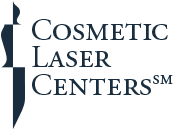
See How Esthetician Services and Laser Treatments in Pittsburgh, PA, Saves Your Skin
No matter what you do, you just can’t seem to get rid of the patches on your face. They appeared during pregnancy, and now they just won’t go away! If you’re struggling with melasma, and are tired of mismatched makeup and harsh exfoliants, then it’s time to consider medical-grade esthetician services and laser treatments.
So, what is melasma and how do you treat it? Read these common questions about this skin condition, and find out how you can effectively treat it with help from Cosmetic Laser Centers.
What Is Melasma? Is It Dangerous?
Melasma loosely translated means “black spot.” That sounds super-scary, but melasma is actually harmless. Symptoms of melasma include light brown, dark brown, or blue-gray patches on your face and body. You might notice them as flat patches or as freckle-like spots.
The most common areas that are affected are your cheeks, forehead, forearms, and upper lip. Melasma darkens and lightens over time, and usually gets worse in the summer. It’s often called the “mask of pregnancy,” because it’s very common in pregnant women. In fact, up to 50 percent of pregnant women get it.
Melasma never turns into cancer, and it is not itchy or painful. However, it’s impossible to treat with over-the-counter products and anti-aging treatments.
So, What Happened to My Skin?
Your skin has three layers: the epidermis, the dermis, and the subcutis. The epidermis contains cells called melanocytes that store and create melanin (pigment). UV rays or hormones can stimulate melanin production.
Often, the extreme hormonal fluctuations in pregnancy can send your melanocytes into overdrive. In particular, your production of estrogen and progesterone increase, which can cause melasma. For most people, melasma fades quickly after pregnancy, but sometimes it doesn’t. That’s when it’s time to look for esthetician services or laser treatments near you!
What Kind of Melasma Do I Have?
The type of melasma you have depends on the depth of your pigment. A Wood’s lamp, a light that emits long-wave UV light, can determine the depth of your pigment. The three types are:
Epidermal Melasma
This type of melasma is characterized by its dark brown color. It has a well-defined border and is easily identified by a Wood’s lamp. It is the most responsive to treatments out of the three.
Dermal Melasma
Dermal melasma has a blue tone or light brown color, with a blurry border. It doesn’t appear differently under a Wood’s lamp and rarely responds to treatments other than laser facials.
Mixed Melasma
This is the most common type of melasma. It has both bluish and brown patches, and appears as a mixed pattern under a Wood’s lamp. It shows some response to treatments.
Will I Have Melasma Forever?
Melasma is a chronic disorder, lasting for as little as three months, or for your entire life. There are certain medications that can make your melasma worse, such as antiseizure medications, birth control, and synthetic estrogen.
Unfortunately, you can likely thank your mom and dad for melasma. That’s because most people who are diagnosed with this skin condition have reported that someone else in their family has it, too.
How Can I Treat Melasma at Home?
The first thing you can do to treat your melasma is talk to an esthetician about finding a high-quality broad-spectrum sunscreen for your face. Melasma can get worse with exposure to UV rays, so it’s best to avoid them whenever possible. The next time you schedule esthetician services, ask about the best sunscreen for your skin type.
You won’t find any products at the cosmetic counter or in the grocery store to treat melasma, and you most certainly can’t scrub it away with harsh exfoliants. If you’re trying to treat your skin this way, you’re most likely making your condition worse, or causing other skin problems in the process.
The Only Way to Treat Melasma Is With Esthetician Services and Laser Treatments
If you have melasma, don’t despair! Chemical peels and laser treatments are highly effective in treating melasma. See how you can finally love your skin again with these remarkable treatments:
Chemical Peels
These esthetician services remove a portion of the epidermis and take extra pigment along with it. When your skin refreshes itself, it contains much less melanin. This reduces the appearance of your melasma and prevents future pigment from accumulating on your skin.
There are several kinds of chemical peels available to suit your skin type and treat your melasma at the same time. As a bonus, chemical peels also boost your production of collagen, which gives your skin more volume and a youthful glow. Most experts recommend a medium-depth facial peel for melasma.
Laser Treatments
If you have melasma that just won’t respond to chemical peels or fade over time, then laser treatments are the only way to reduce the appearance of your melasma. Fractional non-ablative laser therapy has been FDA-approved to treat resistant melasma. It’s gentle, non-irritating, and targets the melanin in your skin with precision.
Cosmetic lasers use a heat beam to treat the tiny pockets of melanin in your skin to painlessly remove several layers of skin. After your laser treatment, you’ll notice brighter, smoother skin, increased collagen production, diminished wrinkles, reduced acne scarring, and, of course, dramatically less melasma.
Don’t Schedule Your Chemical Peels or Laser Treatments With Just Anyone!
The only way to get the results you want with chemical peels and laser treatments is to find an expert in cosmetic treatments. Those who are inexperienced in treating melasma can make your skin worse by causing scarring and hyperpigmentation. Always choose an expert who can show you results from former patients through before-and-after photos, for example.
Treat Your Melasma at Cosmetic Laser Centers
Our team of medical professionals are experts in cosmetic treatments, and can come up with a plan to help your skin look like new. Don’t hide behind your pregnancy mask anymore, and schedule a consultation for a chemical peel or laser treatment.
Contact us today at (724) 269-2893, or request a consultation by sending us a message online. After treatments, many people have excellent results when combining our cosmetic treatments from our master injector and a top-notch skin care routine. So, make sure you ask us about keeping your skin clear with one of our luxury skin care brands!
